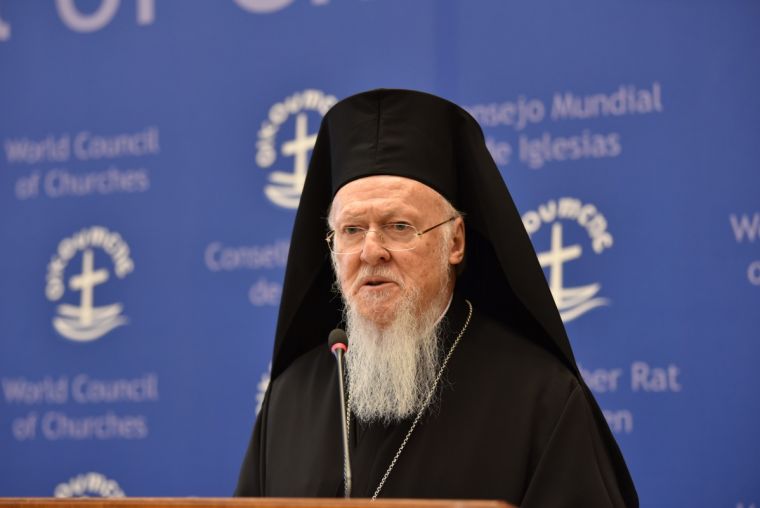Ecumenical Patriarch defends Holy and Great Council in Geneva address
The Patriarch of Constantinople has used an address at the World Council of Churches in Geneva to defend the Pan-Orthodox Council in Crete last year that was damaged by the last-minute withdrawal of several Churches.
Ecumenical Patriarch Bartholomew, who is 'first among equals' in the Orthodox heirarchy and convened the council in an attempt to iron out long-standing problems over competing jurisdictions and how the Church should relate to the modern world, also stressed Orthodox commitment to the care of creation and to the protection of young people.

While addressing an ecumenical audience, his words about the Holy and Great Council were clearly intended for Orthodox hearers. The council was intended to bring together all 14 independent or 'autocephalous' Churches after a period of preparation that saw them all sign up to preliminary documents. However, five Churches including the giant Russian Orthodox Church withdrew, in a serious blow to Bartholomew's authority.
Bartholomew said the council had been necessary because 'coming together in one place' was part of the Church's nature and failure to do so could only be justified by 'insurmountable historical circumstances' – an allusion to the grip of Communism on many Orthodox countries. 'In this sense, the realisation of the Holy and Great Council was a success in itself,' he said.
He said the council was need to deal with the tendency of Orthodox Churches towards independence: 'each of the Churches promotes its own interests and ambitions – which are not always of a strictly ecclesiastical nature', he said, referring to 'a sentiment of self-sufficiency within the individual Churches' and 'introspective and self-absorbed tendencies'.
He also referred to the problem of the Orthodox diaspora, which meant more than one bishop had jurisdiction in the same geographical area – unacceptable in Orthodox theology – and mounted a strong defence of Orthodox participation in the ecumenical movement, to which conservative Churches like Georgia are deeply opposed.
While the Holy and Great Council continued as planned and was a considerable achievement, the failure of so many Churches to attend undermined its status as authoritative and reflects the immensely complex nature of Orthodox politics. It may also reflect a continuing power struggle between Constantinople and Moscow. The Russian Orthodox Church is resurgent under Vladimir Putin and increasingly powerful, and some of its activists believe it should have an official pre-eminence over Constantinople despite the latter's historic claim.
The Patriarch also made a passionate call for action on climate change and care for creation. The Churches, he said, were to 'awaken the world to the irreversible destruction of God's creation because of human sinful actions. The necessity of ecological education is not only a problem for our states, but should also be the problem of our Churches.'
He said: 'Scientific knowledge, supported by statistics and climatic models, as well as plain observations made by peasants, farmers, indigenous peoples and coastal inhabitants has confirmed that the climate is changing because of human activities and that such change will prove disastrous for life on this planet, while we are still unable to take the unavoidable steps to detain the already tangible and oncoming appalling events.'
He also called for renewed efforts to protect children and young people from violence and to eradicate modern slavery.











